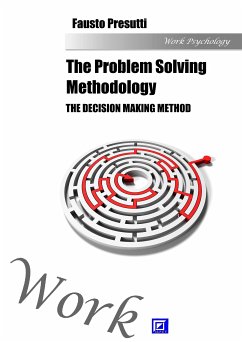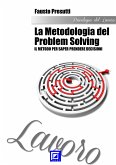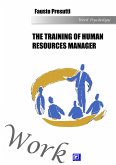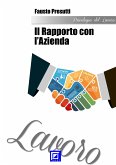Problem Solving processes form the method for learning to learn, so that we can develop:
- productive reasoning to manage interventions to successfully overcome the problems of daily life;
- processes, to achieve goals, to seize opportunities, and to make improvements with respect to problematic, difficult, conflict and/or change situations.
The processes of Problem Solving are characterized by the principle: the adequate structuring of the modes of organization and cognitive processes of reasoning allows the management and the resolution of problems, overcoming the difficulties and uncertainties inherent in decision making.
The way of learning to learn through Problem Solving is based on the structuring of cognitive processes that allow to succeed in:
a) finding intelligent and creative solutions,
b) making intervention decisions.
The Problem Solving is therefore characterized by a cognitive and decisional path whose phases can be schematized in the following way:
phase 1. PROBLEM FINDING: posing the problem and analyze the situation to identify problems and possible causes;
phase 2. SOLUTION PLANNING: prioritizing problems, choosing and planning solutions;
phase 3. DECISION MAKING: implementing decision-making processes and intervention strategies;
phase 4. RESULTS AND PROCESSES ASSESSMENT: verifying the results achieved and the processes developed in order to prepare any corrective and improvement actions.
- productive reasoning to manage interventions to successfully overcome the problems of daily life;
- processes, to achieve goals, to seize opportunities, and to make improvements with respect to problematic, difficult, conflict and/or change situations.
The processes of Problem Solving are characterized by the principle: the adequate structuring of the modes of organization and cognitive processes of reasoning allows the management and the resolution of problems, overcoming the difficulties and uncertainties inherent in decision making.
The way of learning to learn through Problem Solving is based on the structuring of cognitive processes that allow to succeed in:
a) finding intelligent and creative solutions,
b) making intervention decisions.
The Problem Solving is therefore characterized by a cognitive and decisional path whose phases can be schematized in the following way:
phase 1. PROBLEM FINDING: posing the problem and analyze the situation to identify problems and possible causes;
phase 2. SOLUTION PLANNING: prioritizing problems, choosing and planning solutions;
phase 3. DECISION MAKING: implementing decision-making processes and intervention strategies;
phase 4. RESULTS AND PROCESSES ASSESSMENT: verifying the results achieved and the processes developed in order to prepare any corrective and improvement actions.









